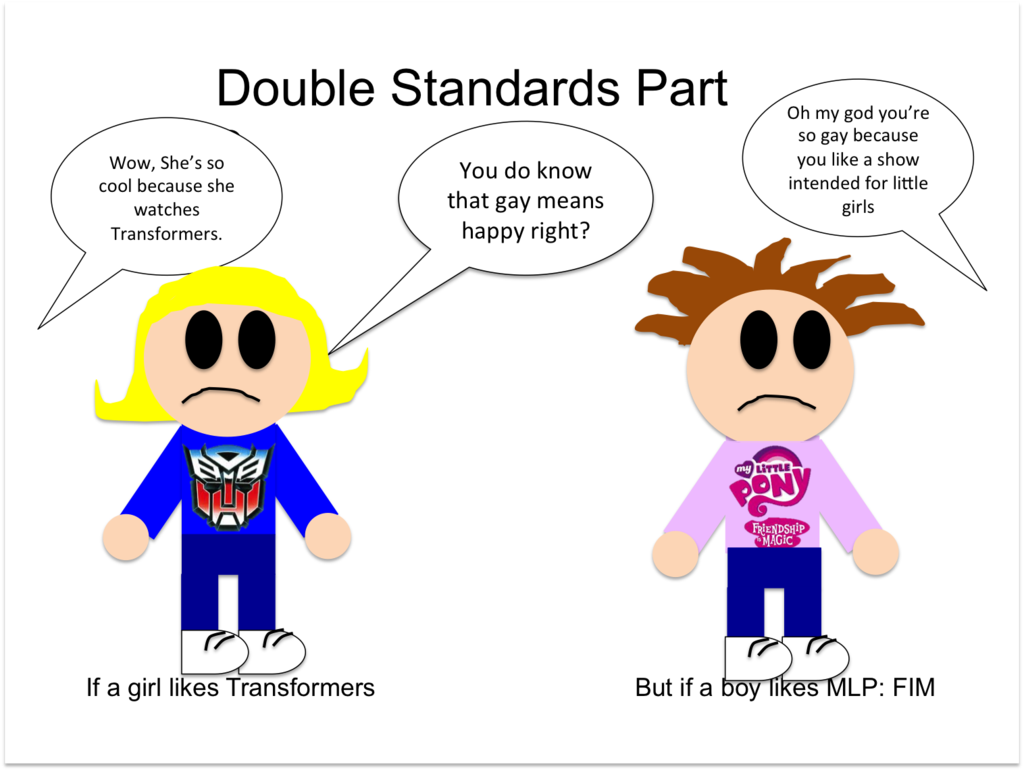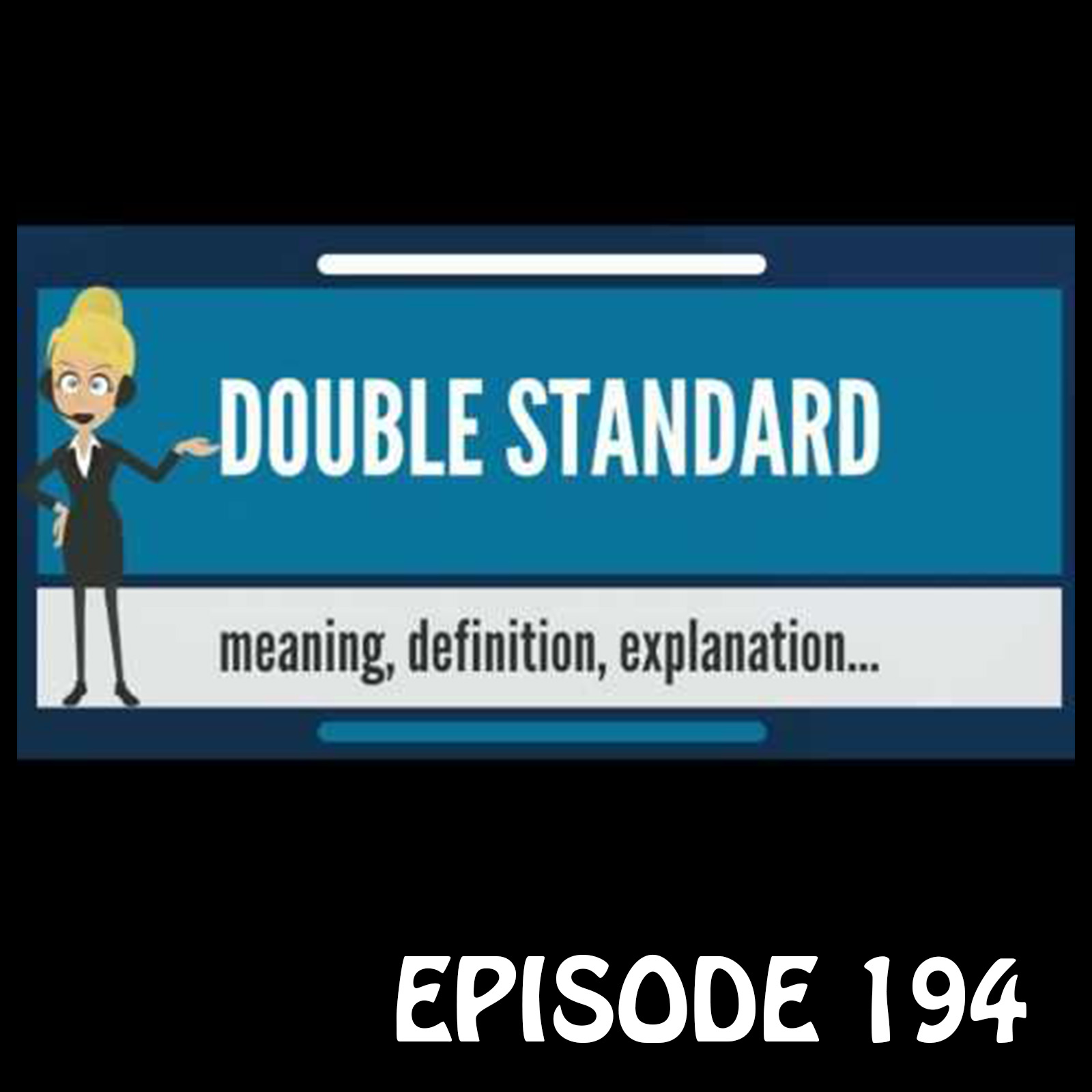Understanding Double Standard Meaning - Fairness And Rules
Have you ever felt like the rules change depending on who's playing? It's a rather common feeling, isn't it? Sometimes, it seems as though one set of guidelines applies to some folks, while a different, often tougher, set applies to others. This feeling, this sense of an uneven playing field, is actually at the very core of what we talk about when we mention a "double standard." It's about how principles or expectations get bent, usually making things harder for one group over another.
Imagine, if you will, a situation where two people do the exact same thing. Yet, one person gets a pat on the back, and the other gets a stern talking-to. That, in a way, is the heart of the matter. A double standard pops up when the same actions, or even just the same situations, are looked at through completely different lenses, with consequences that aren't quite even. It's not about being fair; it's about a lack of balance in how things are judged.
So, what does this truly mean for our daily lives, and why does it matter? Well, it speaks to how we expect people to behave, how we judge their actions, and whether those judgments are truly even-handed. When we talk about a double standard, we're really talking about a situation where one person or group is given more freedom, or maybe less scrutiny, than another, for no good reason at all. It's a pretty simple concept, but its effects can be quite wide-reaching.
Table of Contents
- What is the Double Standard Meaning, Really?
- How Does Unfairness Appear in Rules?
- Why Do We See Double Standards in Action?
- When Does Ethnicity Play a Role in Double Standard Meaning?
- Are Double Standards Just About Rules of Conduct?
- What About Gender and the Double Standard Meaning?
- Spotting a Double Standard - What to Look For
- The Ideal Versus the Reality of Fair Treatment and Double Standard Meaning
What is the Double Standard Meaning, Really?
At its core, the double standard meaning points to a situation where a collection of guidelines or expectations is applied in a way that isn't quite the same for everyone. It's like having two different sets of scales for measuring the same thing. One scale might be a bit lighter for some, while the other is a lot heavier for others. This happens when the principles are, in a way, twisted so that they weigh more heavily on one person or group compared to another. It's not just different; it’s usually more strict for one side. For example, if you have a rule that says everyone must be on time, but only certain people get in trouble for being late, that's a pretty clear sign of this uneven application. It’s about how rules, which should be neutral, become biased in their practical use.
This difference in how things are handled isn't just a minor tweak; it’s often a significant shift that makes things harder for one side. Think about a situation where a certain type of behavior is considered perfectly fine for one person, but the very same behavior is seen as completely unacceptable if someone else does it. That’s the heart of the double standard meaning. It's a code or a way of operating that, without any good reason, gives one group an advantage or a disadvantage over another. It’s about favoritism or disfavor, disguised as a rule. We really ought to question why such differences exist.
How Does Unfairness Appear in Rules?
Unfairness in rules shows up when the stated principles, which might seem fair on paper, are put into practice in a way that creates an imbalance. It's when a standard of what is considered good conduct, or what is acceptable, is expected from some people but, quite unfairly, not from others. Imagine a school where boys are allowed to chew gum in class without a word, but if a girl does it, she immediately gets a detention. That’s a situation where the rule about chewing gum is applied very differently based on gender, and it feels quite wrong. It’s a very clear instance of an unfair expectation.
This kind of unfairness can also appear when principles are applied to things that are similar, but in a completely different way, and without a good reason to do so. For instance, if two businesses are in the same industry and face the same regulations, but one is allowed to cut corners while the other is held to a much higher, stricter level of compliance, that’s a double standard. There's no logical justification for the difference in treatment. It really just creates an uneven playing field, making it harder for one party to succeed or simply exist.
Why Do We See Double Standards in Action?
We often see double standards in action because, frankly, people sometimes hold biases, even if they don't mean to. These biases can lead to rules or expectations being applied unevenly. It's not always a grand, deliberate plan to be unfair; sometimes, it’s just a subtle leaning towards one group or another. The core of the double standard meaning here is about a lack of proper justification for treating similar things or people differently. It just happens, quite often, without a clear, reasonable explanation.
Consider a workplace where an older employee is given a lot of leeway for being late, perhaps because "they've been here forever," but a newer, younger employee gets a formal warning for the same tardiness. Both are late, but the response is different. This kind of situation shows how an unstated 'policy' or 'code' can favor one person over another, even if the written rules are supposed to apply to everyone. It really highlights how deeply ingrained these unfair practices can become, almost without anyone noticing.
When Does Ethnicity Play a Role in Double Standard Meaning?
Ethnicity can, unfortunately, play a part in the double standard meaning when people are either favored or pushed aside based on their background, in situations where their ethnicity has absolutely no bearing on what's happening. This is a very serious form of unfairness. For example, if a person applying for a job is overlooked simply because of their ethnic origin, even though they are perfectly qualified and ethnicity is not a relevant factor for the position, that's a clear instance of a double standard at play. It's a situation where a characteristic that should be irrelevant becomes a basis for judgment.
It's about making choices to prefer or reject someone based on something as arbitrary as their heritage, when that heritage has nothing to do with their abilities or the situation at hand. This kind of double standard means that some individuals face an uphill battle, or are denied opportunities, purely because of who they are, not what they can do. It's a pretty stark reminder that fairness isn't always present in our interactions, and that we really need to work to make things more equitable.
Are Double Standards Just About Rules of Conduct?
While double standards often pop up in discussions about rules of conduct, they aren't limited to just that. The double standard meaning stretches to any situation where two or more things, whether they are people, groups, organizations, or even circumstances, are looked at or handled differently, without a good reason. It’s not just about what you can or cannot do; it’s also about how you are perceived, how much trust you are given, or how your mistakes are viewed. It's a much broader concept than just behavior.
Think about how a product from a well-known brand might be forgiven for a small flaw, while a similar product from a lesser-known company might face harsh criticism for the very same issue. The 'rule' of quality assessment is applied differently, based on reputation rather than the product itself. This shows that double standards aren't only about personal actions but can also affect how businesses, institutions, or even ideas are judged. It's really about the unequal treatment of similar entities.
What About Gender and the Double Standard Meaning?
Gender often plays a significant part in the double standard meaning, and it’s something we see quite often. The provided text touches on this directly, pointing out that in many cases, a double standard refers to men being given more freedom or latitude than women in similar situations. For instance, if a man is seen as "assertive" for expressing his opinion strongly in a meeting, but a woman doing the exact same thing is labeled "aggressive" or "bossy," that’s a classic example of a gender-based double standard. The behavior is the same, but the judgment changes based on gender.
Another common example might involve expectations around personal appearance or emotional expression. A man might be praised for being stoic and unemotional, while a woman expressing strong feelings might be dismissed as "too emotional." Conversely, a woman might be expected to be nurturing and caring, while a man showing the same traits might be seen as "soft." These are subtle yet powerful ways the double standard meaning shows up, creating different sets of expectations for people based solely on their gender. It’s a pretty persistent issue that affects many aspects of life.
Spotting a Double Standard - What to Look For
Spotting a double standard means looking for situations where two people, or two groups, or even two similar circumstances, are handled very differently from each other in a way that feels unfair to one side. It’s about noticing when someone gets away with something that someone else would be penalized for, or when one group is allowed more leeway in their actions. If you find yourself thinking, "Wait a minute, why is *that* okay for *them* but not for *me*?" then you're probably seeing a double standard at work. It really comes down to an imbalance in treatment.
When you accuse a person or an organization of having double standards in how they treat different groups of people, you are saying that they are unfairly giving more freedom of behavior to one group. It's about a lack of consistency in how rules or expectations are applied. For instance, if a company has a strict dress code, but certain high-ranking employees consistently ignore it without consequence, while junior staff are reprimanded for minor infractions, that’s a clear sign. It shows that the rules aren't being applied evenly across the board.
The Ideal Versus the Reality of Fair Treatment and Double Standard Meaning
Ideally, we would all hope to be judged by the same set of criteria, wouldn't we? The goal is for fairness to be the guiding principle, where everyone is held to the same expectations and receives the same consideration. However, the reality often falls short of this ideal. The double standard meaning highlights this gap: when someone is treated differently than someone else who is in the exact same situation, especially when that difference is not justified. It’s a stark contrast between how things should be and how they actually are.
This discrepancy between the ideal of equal treatment and the reality of uneven application is where double standards truly show their impact. It’s about the frustration and injustice that arise when one group is given more freedom, or more "latitude," than another, simply because of who they are, not what they have done. It's a reminder that while we strive for a world where everyone is judged by the same fair measure, the presence of double standards means we still have work to do in making that ideal a common reality.

15 Double Standards Examples (2025)

Double Standard Definition

Double Standard Definition